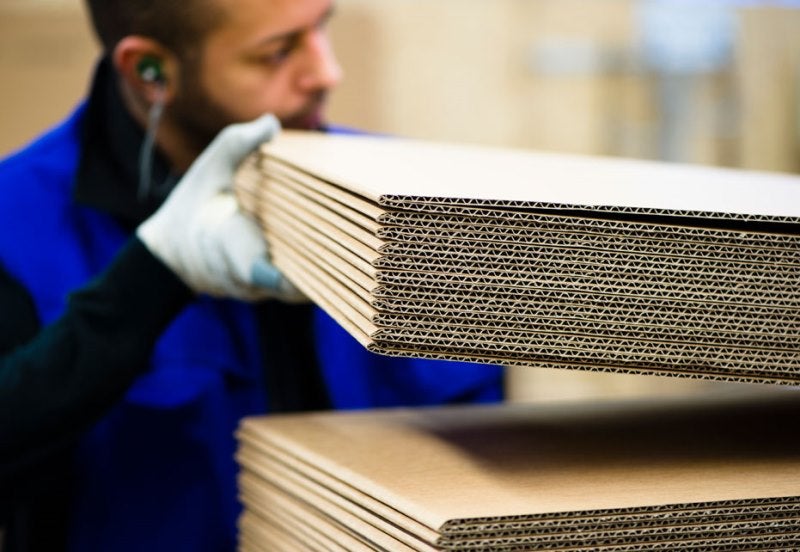
The report, ‘Sector is less susceptible, but not immune, to coronavirus disruptions’, also found that food, beverage and pharmaceutical packaging businesses are “demonstrating resilience in the current environment”, while companies producing packaging for cosmetics, hospitality, and travel sectors are facing a decline in demand.
Moody’s predicts that there will be a stronger focus on cost control due to Covid-19, with companies seeking wage subsidies and governmental support.
Some sectors are “demonstrating resilience”; others more vulnerable
Non-paper packaging sectors in Europe, the Middle East, and Africa (EMEA) were identified as having an overall low exposure to Covid-19 compared with other sectors.
Moody’s report said: “Most of the aggregate revenue of the 15 non-paper packaging manufacturers we rate is generated from relatively resilient end markets, such as food [and] beverage”. The beverage market represents 48%, food 31%, personal care and cosmetics 7%, pharmaceutical and healthcare 6%, industrial 3% and other sectors 5%.
Packaging companies that serve these more resilient sectors are likely to do well in the current environment, with stockpiling, changing demand patterns and government measures likely to lead to an increased demand for certain products.
Research conducted by UK-based packaging industry expert Infiniti Research at the end of May revealed that industries that supply for groceries, consumer goods, pharmaceuticals, and e-commerce are “expected to witness a steep increase”. The demand for luxury and industrial packaging, however, may show a decline.

US Tariffs are shifting - will you react or anticipate?
Don’t let policy changes catch you off guard. Stay proactive with real-time data and expert analysis.
By GlobalDataSocial distancing measures implemented globally have meant that some products, such as in the cosmetics and beauty industry, have been low in demand. The global recession forecasted for 2020 will also likely have a negative impact on consumer spending according to Moody’s.
What should packaging companies consider post-coronavirus?
Infiniti Research advises packaging companies to consider implementing recovery strategies to include a mixture of financial resilience and plans for restarting operations at packaging plants, plus strategic customer-focused moves “such as understanding the impact of Covid-19 on consumer packaging choices”.
Infiniti research also advises companies to review their production footprint, evaluate measures for business continuity, and understand areas where packaging demand will be temporarily high.
The British Plastic Federation (BPF) on 29 May launched the updated third version of its Covid-19 safety guide for packaging manufacturers, which advises how to continue operating safely during the pandemic and also features the latest advice from the Government and Public Health England.
BPF member Hozelock health, safety, and environmental manager Russel Sparrow said: “The coronavirus pandemic has, more than ever, put health, safety and wellbeing into sharp focus for manufacturing. At Hozelock, it is important for us as a business to be part of the best practice sharing network offered by the BPF to produce this guidance.
“As a result, BPF delivered Covid-19: Guidance on Good Manufacturing Practice for the plastics sector over five weeks before the Government’s Working Safely guidance on 11 May, meaning that we were able to maintain safe working conditions during the peak of uncertainty. This third edition allows us to continue to take every step necessary to ensure the safety and security of our people and our supply chains.”



